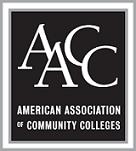 Chuck McIntyre of northern California, has consulted and worked in higher education planning, research, evaluation, finance and management since 1971. Until 1999, he worked as Director of Research and Analysis in a state office of higher education and has consulted with colleges across the U.S., in the United Kingdom and Canada since the early 1999s. His recent engagements have been in the areas of strategic and facilities planning, emphasizing enrollment forecasting, planning, and management – using computer simulation models, recently-released 2000 Census data, and other sources and tools. Chuck McIntyre of northern California, has consulted and worked in higher education planning, research, evaluation, finance and management since 1971. Until 1999, he worked as Director of Research and Analysis in a state office of higher education and has consulted with colleges across the U.S., in the United Kingdom and Canada since the early 1999s. His recent engagements have been in the areas of strategic and facilities planning, emphasizing enrollment forecasting, planning, and management – using computer simulation models, recently-released 2000 Census data, and other sources and tools.
ENROLLMENT FORECASTING, SIMULATION, AND MANAGEMENT Since the early 1990s, Chuck’s work has emphasized enrollment planning and management. In 1993, he developed an econometric model that is currently used in long-range enrollment forecasting for the capital planning at local districts in a state system. He conducted a study for the Maricopa Community Colleges in 1995 on the enrollment-impact of tuition and fees; results have been used by the district for long-range policymaking. Chuck then worked, in 1996, with Lincoln University on a computer model to simulate a variety of enrollment management initiatives in marketing, admissions, registration, and student retention, all designed to tie into budgeting models. Chuck also completed a 1997 study of Pima Community College’s past and future enrollment patterns for its use in planning. In Spring 1997, he was published in Jossey-Bass’ New Directions for Institutional Research, and has spoken on enrollment management at national conferences like the American Association for Community Colleges (SCUP), Association for Institutional Research (AIR), Society for Needs assessmentCollege and University Planning (SCUP), and the Consortium for Community College Development (CCCD). In Fall 1998, Chuck spoke at the European AIR in Spain about use of computer models to forecast enrollments and plan budgets. Also in 1998, he conducted an enrollment simulation and planning (ESP) study at Lansing Community College and, in 1999, he conducted ESP studies at Portland, Mt. Hood and Lane Community Colleges in Oregon and for the State Office of Michigan Community Colleges. In Fall 1999, AACC published Chuck’s book on Enrollment Simulation and Planning. Since then, Chuck has worked on ESP projects at colleges in Oregon, Michigan, Massachusetts, California, Washington, and Texas. STRATEGIC PLANNING Recent engagements by Chuck with Palm Desert and San Mateo (California) and Austin (Texas) Community Colleges have involved a form of strategic planning – learning-centered strategic planning – that emphasizes efforts by these institutions to concentrate in a variety of ways on student learning. Chuck spoke about this technique at a SCUP regional conference in 2002. Chuck’s work in college planning and evaluation spans nearly three decades, beginning in 1974 with an Exxon Education Foundation grant for research on the book Planning Colleges for the Community, published by Jossey-Bass. In 1978, he directed work, supported by a Vocational Education Act grant, on assessments of community educational needs; and in 1981, he was awarded a four-year Fund for Improvement of Postsecondary Education grant to develop new ways to tie college planning and evaluation to accreditation. Since then, Chuck helped develop several long-range plans for a state Board of Governors, has written a number of articles and monographs on college planning, and has directed numerous workshops and symposia on the topic using techniques such as Charrette, Delphi, Nominal Group Technique, and Total Quality Improvement. He has spoken frequently on planning at national and regional conferences like AACC, SCUP, AIR, Pacific Northwest Association for Institutional Research and Planning, Western and Southwestern Regional SCUP, Southeastern Association for Community College Research, California Community College Board of Governors, California AIR, Community College League of California, California Community College Trustees, and California Research and Planning Group, and at many local colleges. As Director of Research and Analysis, he was responsible for numerous state-level planning and evaluation projects, including environmental scanning and futures research projects, one of which was honored in 1996 with a Research White Paper grant from AACC and the Sloan Foundation, and published in Core Issues in Community Colleges (AACC, 1997). FACILITIES PLANNING During 2000, 2001 and 2002, Chuck conducted projects in long-range facilities planning for Mt. San Antonio (CA), Mt. Hood (OR), and Austin (TX) in preparation for capital financing bond elections. These projects involved computer modeling of facility needs, formulation of new space and utilization standards, and new kinds of classroom configurations. He currently is involved in a similar project for College of the Desert (CA) and has an article on the topic forthcoming in the Spring 2003 issue of the Journal of Applied Research in the Community College. Earlier, in 1990-91, Chuck designed and implemented a computer model to project 15-year facility needs for a state system of community colleges; the resulting Board of Governors’ Long-Range Capital Outlay Plan was used to plan and allocate capital outlays for nearly ten years. POLICY RESEARCH Over two decades, Chuck conducted and directed numerous policy research projects for a state office about community college transfer, tuition, fees and financial aid, student services and other topics. His article on transfer performance was published in Research in Higher Education in 1989. Other work includes policy research on such topics as the impact of fees on enrollment (1993), growth funding formulas (1996), and welfare reform (1997), among others. Also in 1997, Chuck completed four technical papers for the 2005 Task Force, a long-range planning effort about future college needs and funding, sponsored by a state Board of Governors and Chancellor. Chuck served on the Research Commission of the AACC between 1997 and 2000. COMPUTER MODELING For the past decade, Chuck also has engaged in many computer modeling projects, designing, developing and implementing planning and decision-support tools for colleges and universities. In 1989, he developed a computer model to forecast college faculty replacement, which was used in human resource planning and presented that year at SCUP. Between 1990 and 1995, Chuck directed a consortium of three dozen community colleges in the U.S., United Kingdom, and Canada in developing computer-aided planning (CAP) models. This work-involving model design, development, quarterly workshops with participants, and testing–was to produce robust and systematic computer simulation models to help colleges plan and make policy decisions. During the CAP project, Chuck held a 1993 planning symposium for staff from community colleges throughout England, Scotland, Wales and Ireland. Among colleges participating in the CAP project were Bilston in Birmingham (England), Lethbridge in Alberta (Canada), Kapiolani (Honolulu), and three-dozen other colleges from the mainland U.S. OTHER EXPERIENCE AND ACADEMIC TRAINING Earlier in his career, as Director of Analytical Studies with a state office of higher education, Chuck directed the design of the office’s first computer-based management information system and was responsible for the design and implementation of two financing systems by which the state office allocated funds to local districts. Chuck also has worked on projects assessing the economic impact of colleges, and in 2001 he helped AACC evaluate a new cost-benefit model for this purpose. Chuck’s academic training is in economics: PhD from University of California, MA from California State University; and in anthropology: BA from University of Colorado. He has taught undergraduate microeconomics and graduate higher education finance at the California State University. Prior to working in higher education, Chuck played professional baseball for the Milwaukee Braves organization. |
Specialties:
|
Tag Archives: AACC
Frank Gornick

Frank Gornick is chancellor of a community college district in California serving one of the poorest regions of the nation. Enrollment has increased three fold since 1994 while the total district revenues have been matched with an aggressive federal and state grant program. The district consists of two colleges, as well as centers throughout the 3,000 square mile service area. In 2002, the district was recognized by the Met Life Foundation “For excellence in promoting education and economic advancement for underserved youth and adults.” In 2004, the college district was awarded the prestigious California Community College Chancellor’s Diversity Award for Excellence for its work in promoting and hiring a diverse administrative staff. Campus Compact recently featured this college in its spring publication: One with the Community: Indicators of Engagement at Minority-Serving Institutions. Dr. Gornick has led an aggressive campaign for child care in his district with a goal of placing a college-operated child care facility in every community the district serves. The district’s intent is to address the whole family’s educational needs and promote access to education through the use of these centers. He has fostered the aggressive use of technology by forging strategic partnerships with Cisco Systems, Pacific Bell, Federal agencies, local Workforce Investment Boards and others to deliver low cost solutions of access to technology. This effort has led to one of the most advanced on-line educational programs in the state–if not the nation. Retention rates exceed 75 percent. His staff has exploded the myth that poor citizens without access to computers will shun on-line educational opportunities. His low-key yet high energy approach to leadership encourages people by example and with enthusiasm. He has transformed the college into a district that knows what it is doing and cares about the people it is enabling. Dr. Gornick joined forces with community college presidents, AACC and business leaders to begin the discussion of the future of education in our country. Dr. Gornick wrote an article for the Community College Journal, December/January 2006 edition titled: A Call to Action: Reclaiming our Competitive Advantage. Dr. Gornick and the other leaders are beginning the dialogue on a national level this year. |
Specialties:
|
Partners
![]()
AdjunctSuccess is the only organization dedicated solely to the professional development needs of part-time professors, and the instructional leaders who coordinate their work. Members of AdjunctSuccess receive a seat in 15 live topical webinars and have access to archived recording, a monthly e-newsletter, and access to rich sets of printable and online resources. To learn more about AdjunctSuccess and its membership, please visit their website.
—————————————————————————————————————————————————

The American Association of Community Colleges (AACC) advocates for over 1,200 two-year colleges nationwide. The AACC promotes its college members through policy initiatives, innovative programs, research and information and strategic outreach to business, industry, and the national news media. The AACC also encourages collaboration amongst its members by creating networking opportunities at all levels, which drive professional initiatives, dialogue, and community building. To learn more about the AACC and its benefits visit their website for more information.
—————————————————————————————————————————————————

FINTELO is a next-generation internet-based learning software program that makes online teaching and learning for instructors and students more engaging, immersive, enjoyable and easier to use than products that are currently available in the market today. Fintelo was created by Distance Edu Learning, Inc., which has committed its entire resources to creating innovative products and services that meet the needs of educational institutions, business organizations,and the military; providing the highest quality educational tools to the most critical end user – the learner! To learn more about Fintelo or to schedule a demonstration, please visit their website.
—————————————————————————————————————————————————

The League for Innovation in the Community College is an international organization dedicated to catalyzing the community college movement. The League host conferences and institutes, develop Web resources, conduct research, produce publications, provide services, and lead projects and initiatives with our member colleges, corporate partners, and other agencies in our continuing efforts to make a positive difference for students and communities. The League is also the leading community college organization in the application of information technology to improve teaching and learning, student services, and institutional management. To learn more about The League and their upcoming conferences, please check out their website.

The North-American Council for Staff, Program and Organizational Development (NCSPOD) serves a diverse membership comprised of colleges, universities, business, industry, consulting firms and government agencies from across the United States and Canada. NCSPOD’s mission is to increase institutional vitality by providing professional growth opportunities for our members, enabling them to establish, enhance and revitalize staff, program and organizational development in their organizations. NCSPOD creates opportunities for members to discuss and share professional development solutions to your faculty, staff, program and organizational development challenges. Check out their website to learn more.
The Community College League of California is a nonprofit public benefit corporation whose voluntary membership consists of the 72 local community college districts in California. The Community College League of California is the primary advocacy organization for California community college districts and promotes effective leadership at all levels by delivering outstanding services and programs that engage districts and support their operations.If you would like to learn more about the programs and services offered by the Community College League of California, visit their website.



